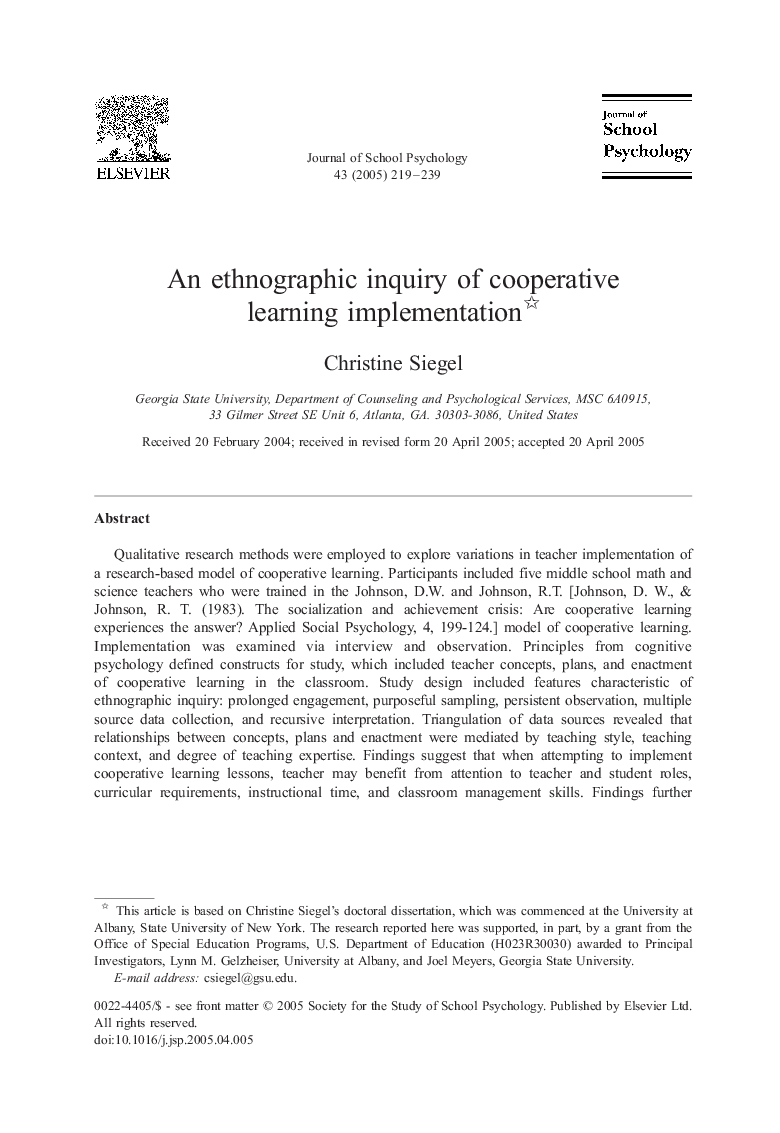| Article ID | Journal | Published Year | Pages | File Type |
|---|---|---|---|---|
| 10315230 | Journal of School Psychology | 2005 | 21 Pages |
Abstract
Qualitative research methods were employed to explore variations in teacher implementation of a research-based model of cooperative learning. Participants included five middle school math and science teachers who were trained in the Johnson, D.W. and Johnson, R.T. [Johnson, D. W., & Johnson, R. T. (1983). The socialization and achievement crisis: Are cooperative learning experiences the answer? Applied Social Psychology, 4, 199-124.] model of cooperative learning. Implementation was examined via interview and observation. Principles from cognitive psychology defined constructs for study, which included teacher concepts, plans, and enactment of cooperative learning in the classroom. Study design included features characteristic of ethnographic inquiry: prolonged engagement, purposeful sampling, persistent observation, multiple source data collection, and recursive interpretation. Triangulation of data sources revealed that relationships between concepts, plans and enactment were mediated by teaching style, teaching context, and degree of teaching expertise. Findings suggest that when attempting to implement cooperative learning lessons, teacher may benefit from attention to teacher and student roles, curricular requirements, instructional time, and classroom management skills. Findings further demonstrate the important contributions of qualitative research to the cooperative learning literature.
Related Topics
Social Sciences and Humanities
Psychology
Applied Psychology
Authors
Christine Siegel,
